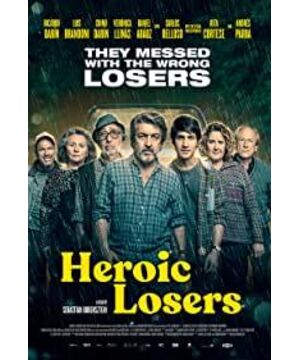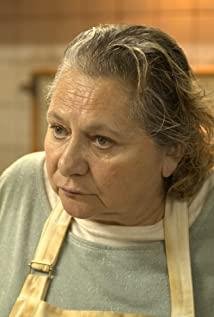If you want to really understand the film, you need to understand the background of this country.
The biggest turning point in the story in the film is the implementation of the corralito policy by the Argentine government, which the film translates as "small corral". This is actually a policy actually implemented by the Argentine government at the end of 2001. Simply put, it is to prevent bank runs and restrict residents' cash withdrawals in the most brutal way. That is, the protagonist asked, what is the monthly limit, and the protagonist's wife replied: 250 pesos.
This method sounds ridiculous, but it does exist, and it has made Argentines completely distrustful of the government until now, and even like to hide U.S. dollars in cash under mattresses and flower pots at home. Of course, if your money is deposited in the bank and cannot be withdrawn, why trust the government. This has also caused Argentina's foreign exchange reserves to be very small until now, unable to withstand the impact of any international situation, and the value of the local currency has plummeted.
There was even a time when the International Fund (FMI) was reluctant to give any assistance to the Argentines. At that time, the only country that could provide loans to Argentina was China, and I also worked in Argentina during that time.
Going back to that period of history, in fact, such a socio-economic crisis originated during the overall tenure of MENEM in 1998. Up to now, many Argentines also regret saying: The biggest failure in life is to elect Menem as president. One of the reasons for the crisis was the increase in government deficits and the naive and proud 1:1 exchange rate between the US dollar and the Argentine peso by the Argentine government. As we all know, the exchange rate is the embodiment of the country's economic strength. The Argentine government enforces a one-to-one exchange rate. If there is no real foreign exchange reserves as support, and the central bank does not adjust monetary policy, the government deficit can only grow larger and larger.
In order to win votes, the Argentine government often imitates the policies of high-welfare countries in Europe and gives a lot of financial subsidies. I remember when I lived in Argentina for a few years, the utility bill was less than 10 yuan a month. This populism started during the time of President Veron, the Veronists mentioned in the film. There are still many Peronists in Argentina to this day.
When this brutal solution is rolled out across the country, it will inevitably lead to huge social riots. So the protagonist came home after the car accident and said that Argentina had changed five presidents, which is also true. Two weeks after the corralito policy was implemented, the then president de la rua fled by plane at the Palazzo della Rosa, the presidential palace of Argentina.
And the big villain is using internal operations. Before this policy was implemented, using the exchange rate of 1 to 1, the pesos with no purchasing power were exchanged for US dollar cash.
Back to the film itself, the quality of the film led by Ricardo Darin is still guaranteed. I even think he embodies the full face of the declining middle class in Argentina. A few years ago, I saw in the little story in "Wild Tales" that if the government can't help me solve this problem, then I can only solve this problem myself. In addition, the old lady in the movie also played a very good storyline in "Wild Tales".
And his son, who played a young police officer of unknown sexuality in "Soul Break Buenos Aires", partnered with his father for the first time, which made my eyes shine.
I like Ricardo Darin's work. I seem to think it's him in all the films, but I think it's the protagonist himself. This is the acting with personal characteristics. In addition to the "Mysterious Eyes" that made him popular, this year's "Unexpected Love", "Truman" and "Murder Papers" also make me feel that they are above the standard and worth watching.
Finally, a word on Argentina. The last time I went three years ago, the city of cloth, the capital of Paris in South America, has long been dilapidated and heartbreaking. But the strange behavior of their government is still going on. For example, in early March this year, I paid money to apply for a visa. After paying the money, I was informed that the government would not issue a visa for the time being and the money would not be refunded.
Argentina's centrality in South America is also waning, with many multinational companies moving their South American headquarters to Chile. But the Argentines still have their own cultural characteristics, and it is worth sighing to watch them sink.
View more about Heroic Losers reviews










